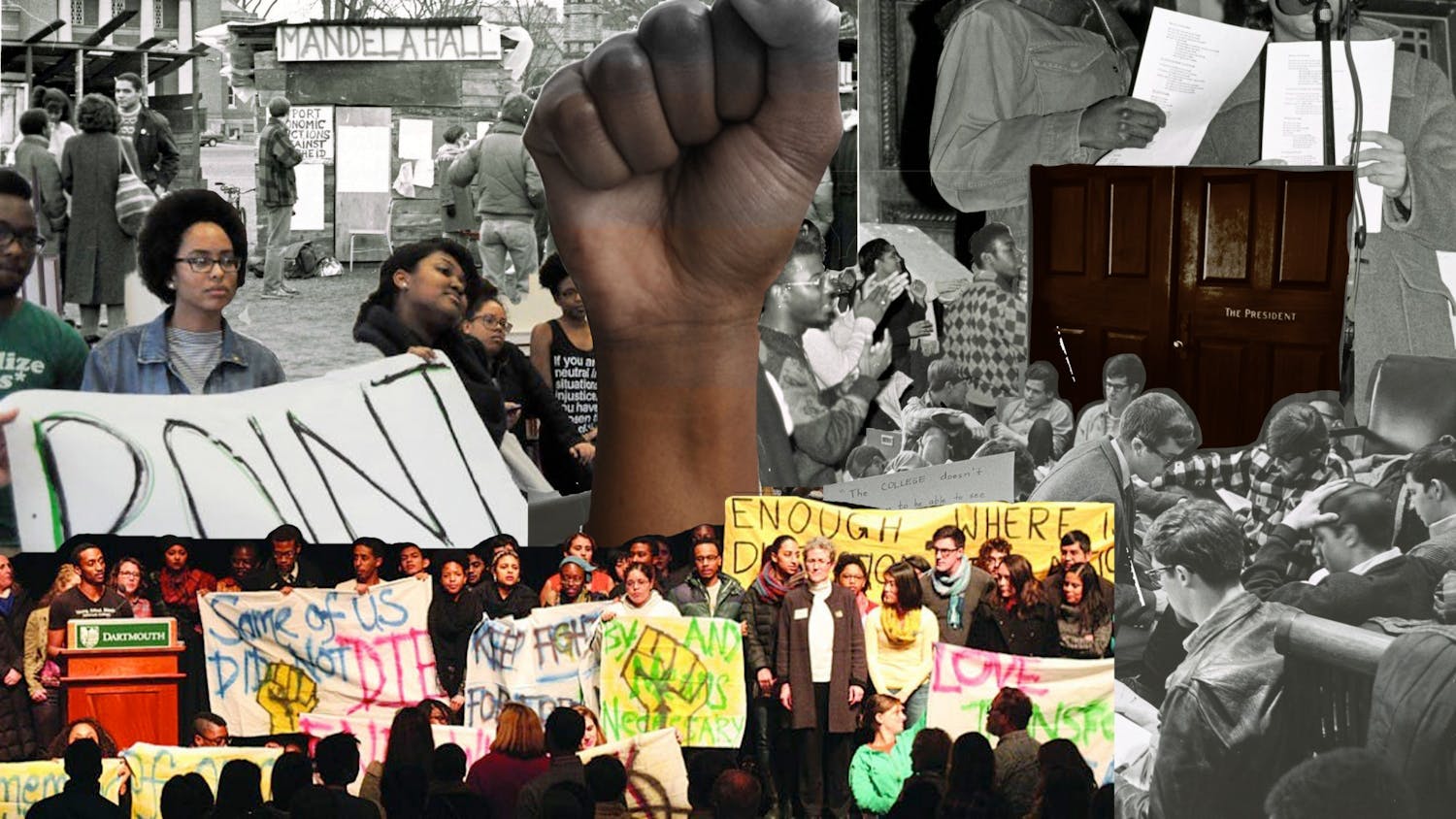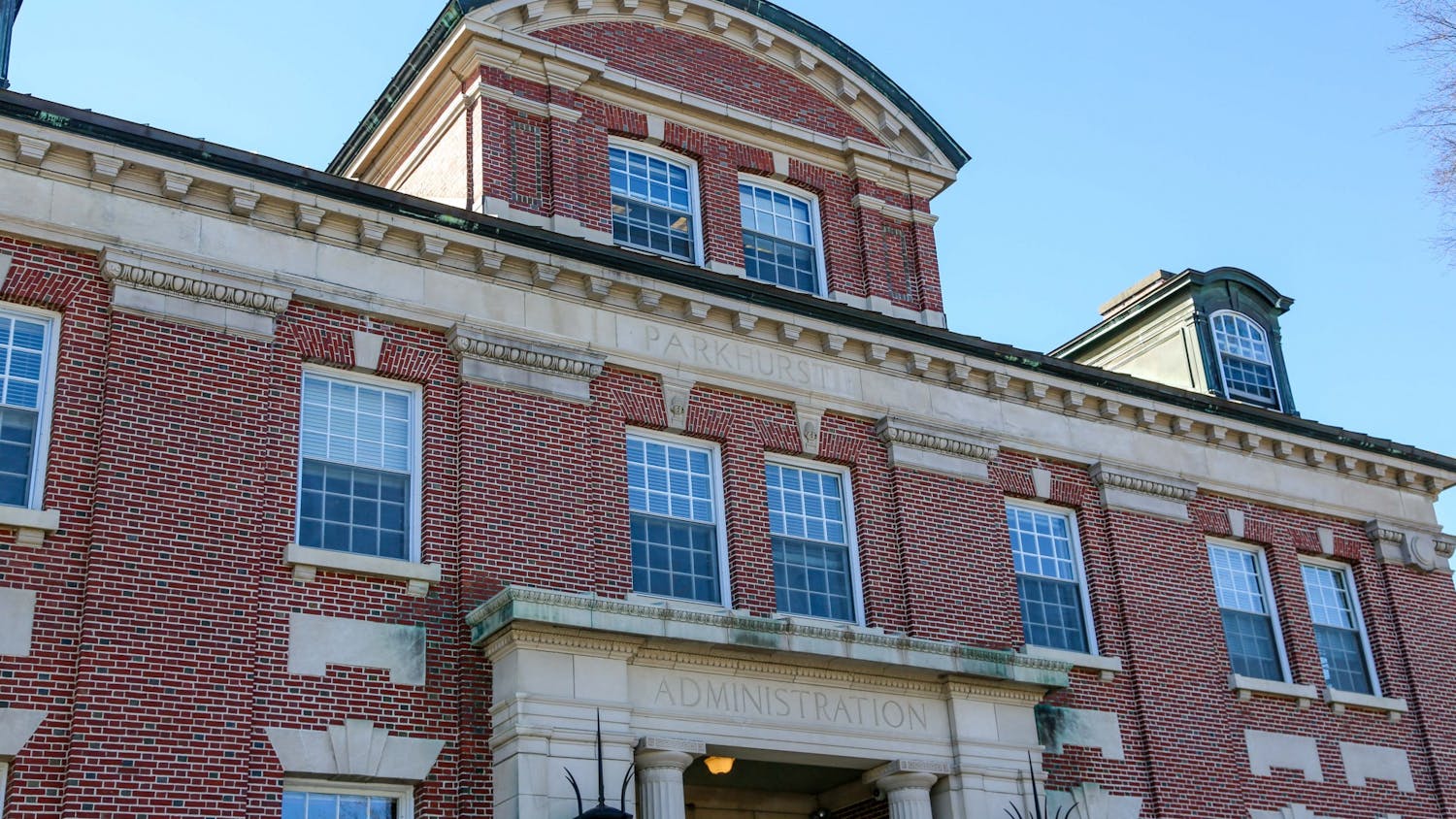During Dartmouth’s annual Martin Luther King Jr. Day celebration, the theme of “Hope and Action” shone through a variety of virtual events. This year's programming, which includes lectures, discussions and films, began on Saturday and will run through the end of January.
On Monday evening, African and African American studies and theater professor Shamell Bell gave her keynote presentation, titled “Collective Freedom Dreaming.” Bell, an organizer, choreographer and original member of Black Lives Matter, introduced the presentation as a "keynote experience," as the address included opportunities for the audience to participate.
“This is an intentional, radical, embodied dialogue to imagine shared liberation,” Bell said during the presentation, explaining that she hoped to bring the group together to discuss and dream about freedom. “… I feel collective freedom dreaming is so much more fruitful than any lecture I can give on MLK during this pivotal moment.”
The event included opportunities for the audience to breathe and write about their own feelings on hope and action around the idea of freedom. As Bell guided the audience through a journaling exercise, she asked, “When we think of our freedom dreams, what would you want to shift? … And what are your skills to make that shift your vision? … What does hope and action mean to you? And finally, what is the relationship between freedom dreams, hope and action for you?”
The event, which was streamed on the Hopkins Center for the Arts YouTube channel, featured Dartmouth students, musicians and members of the Street Dance Activism collective.
Afro-American Society president Daniella Omeruo ’21 opened the event with a reflection on King's quote, "You must accept finite disappointment, but never lose infinite hope."
"Going into 2021, in light of the events that have already transpired, it is still difficult to muster up the belief that relief will come," Omeruo said. She noted that she has continued to find hope in the actions of her peers to protest or raise money through the Dartmouth Student Union's mutual aid fund.
Over 300 people tuned in to the live premiere of the prerecorded program, which was followed by a live Zoom session attended by around 100 people. Instead of a traditional Q&A session, the Zoom session offered a forum for people to speak about their own "freedom dreams," which they were encouraged to write down during the event.
Attiya Khan ’22, who is currently taking a class taught by Bell, said that she liked the “more informal” nature of the presentation.
“It was a space where people were talking about the more vulnerable aspects [of issues],” Khan said, adding that “it’s really healthy and it’s really good and refreshing to have a space like that where people can talk and be transparent about being angry or being dissatisfied.”
The theme of this year’s MLK Day celebration, “Hope and Action,” was decided upon this past fall, according to Office of Institutional Diversity and Equity program manager Kara Wakefield. In deciding the theme, the celebration’s committee was “looking to find moments of hope and optimism where we can, while being called to take action and stand up for what is right at the same time,” Wakefield wrote in an email.
On the eve of MLK Day, College President Phil Hanlon sent an email to the community emphasizing this year’s theme and noting that “there is no hope without action.” The email outlined various College initiatives aimed at advancing “diversity, inclusivity and equality” within the Dartmouth community.
Hanlon wrote that the College plans to elevate BIPOC faculty through various initiatives. He has asked the deans to commit 15 faculty lines — three per year for each of the next five years — toward “a cohort hiring program across the institution for BIPOC faculty and faculty who study these issues” and has implemented “more substantial leadership training” in an effort to increase representation on the Dartmouth senior leadership team. Hanlon also noted that the College has elevated financial aid to be a “top priority” for the remainder of the Call to Lead fundraising campaign.
Last May, the College created the Presidential Commission on Financial Aid to expand its commitment to need-blind admissions for all students, meet all accepted students’ full demonstrated need, eliminate loans for undergraduate students and raise the minimum annual family income to will provide full tuition scholarships from $100,000 to $125,000, Hanlon wrote.
All of this year’s celebratory events were held virtually, beginning with events on Saturday hosted by the Office of Diversity, Inclusion and Community Engagement at the Geisel School of Medicine.
“One exciting part about the virtual format is that it means members of the Dartmouth community from across the country and world are able to access this year’s Celebration programming — students at home this term, families [and] alumni,” Wakefield wrote.
In addition to the College’s celebration, the Geisel School of Medicine hosted an event focused on health equity and sustainable healing amid the pandemic. The Geisel celebration keynote address, presented by founder and CEO of Advancing Health Equity Uché Blackstock, drew a virtual audience of over 100 people and focused on historical instances of medical inequity, as well as identifying different kinds of oppression.
“As physicians, as health care professionals, as students, it really is our obligation to not just care about what’s going on in health care, but what’s going on in the criminal or legal system [and] what’s going on in the educational system, because all of that is interconnected and influences how our patients interact with the health care system,” Blackstock said at the event.
Additionally, the Consortium of Studies in Race, Migration and Sexuality hosted an open “Consortium Conversation” on Monday titled "White Interregnum," which focused on whiteness and violence. At the event, RMS members discussed white supremacy and associated concepts, such as fascism and masculinity, in an attempt to contextualize and “make sense of” the recent insurrection at the Capitol and the current state of the nation.
The Rockefeller Center also hosted founding director of Stanford University's King Research and Education Institute Clayborne Carson on Monday, and the Tucker Center and the Hopkins Center for the Arts hosted a multifaith conversation with Two-Spirit dance and drag performer Snowflake Calvert and poet, dancer and artist Europa Grace titled "Solidarity through Art, Nature and Spirituality."
Events still to come during the month of celebration include a virtual version of the annual Paddock Music Library Sing-In on Wednesday, the 2021 MLK Multifaith Celebration on Jan. 24 and the Social Justice Awards on Jan. 28.




